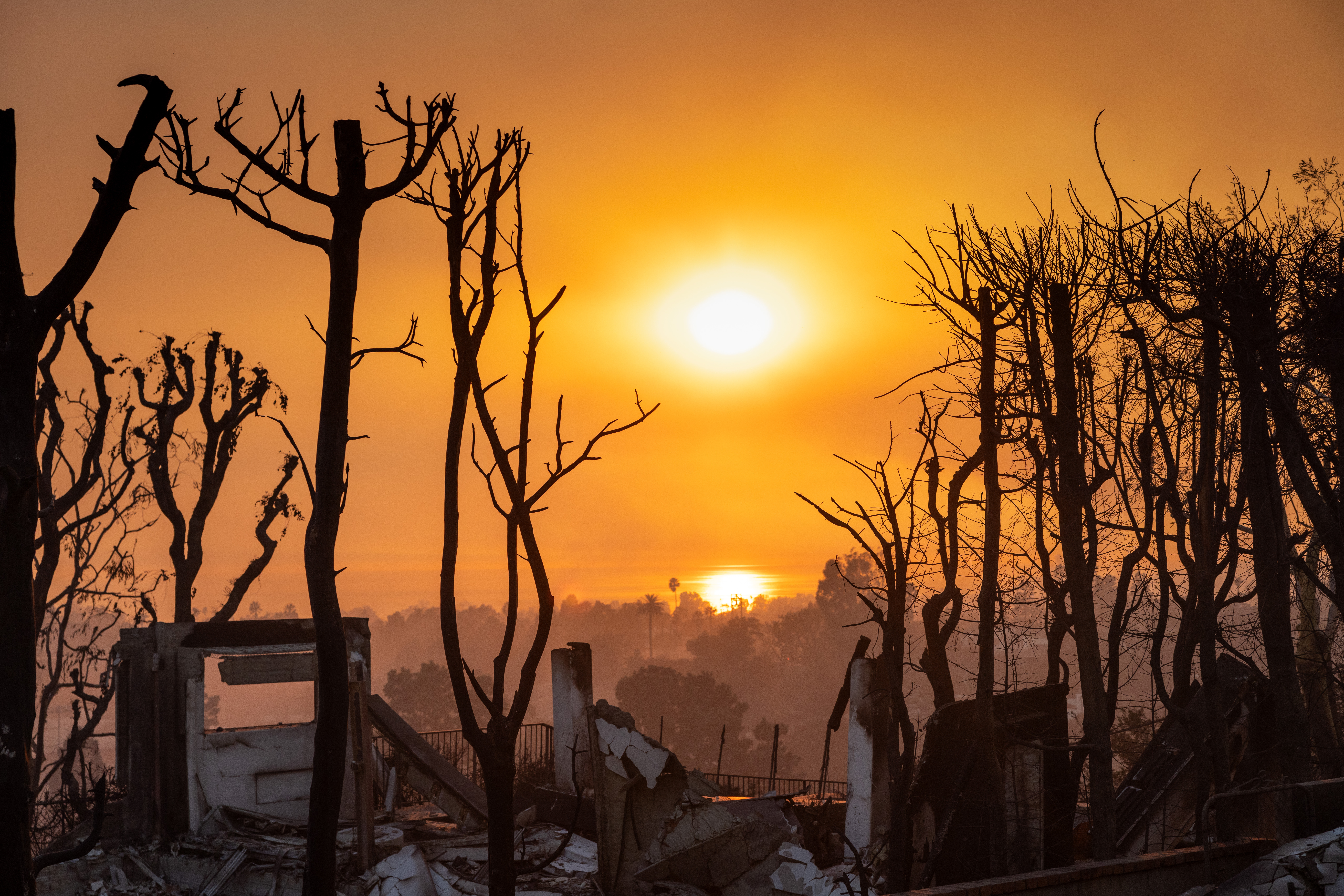
Gale-force winds and floods struck several countries in Northern Europe as the region braced for more heavy rain on Friday. In Scotland, one person was reported dead after being swept into a river and authorities searched for a man thought to be trapped in his vehicle.
The gale-force winds are expected to hit hardest in the eastern part of Denmark's Jutland peninsula and the Danish islands in the Baltic Sea. But the northern part of the British Isles, southern Sweden and Norway, and northern Germany are also on the path of the storm, named Babet by U.K.’s weather forecaster, the Met Office.
Eastern Scotland continued to bear the brunt of the stormy weather. On Friday, the Met Office issued a new “red” warning for parts of eastern Scotland for further flooding throughout Saturday.
A 57-year-old woman died Thursday after being swept into a river in the region of Angus, where 400 homes were evacuated. A police spokeswoman said they were informed Thursday about a man within a vehicle trapped in floodwaters in nearby Marykirk.
Get Tri-state area news delivered to your inbox. Sign up for NBC New York's News Headlines newsletter.
With the worst of the heavy rain in Scotland set to diminish over the coming hours, emergency services warned that rivers may still rise and breach flood defenses. Some parts of the town of Brechin are only accessible by boat after its flood defenses were overwhelmed by the heavy rainfall, raising concerns about further loss of life.
“I cannot stress how dangerous conditions are in Brechin in particular,” said Scotland’s first minister, Humza Yousaf.
Wind gusts in excess of 60 mph (100 kph) were likely on Friday. Several major road sections and rail routes were closed in Scotland, while air passengers were facing flight cancellations.
U.S. & World
On Thursday, the Met Office issued a rare red alert — the highest level of weather warning — for parts of Scotland, predicting “exceptional rainfall” and “danger to life from fast-flowing or deep floodwater.” The last red alert in the U.K. was issued in 2020.
The storm has already brought more than a month’s worth of rain in the worst-affected regions in Scotland and is set to pummel many parts of northern England over Friday.
“It will probably be some kind of historic event,” Hans Peter Wandler of the Danish Meteorological Institute told the Ekstra Bladet daily. “But we’ll have to wait until it’s over to see if it’s going to be a two-year event or a 100-year event.”
Police in southern Denmark — the Danish region expected to be the worst hit — said that a number of road sections in the low-lying areas were flooded and a few trees have also fallen.
Citing the Danish Meteorological Institute — which issued a warning for “very dangerous weather,” its highest — police in southern Denmark said that the water level would continue to rise. Sea levels in parts of inland Danish waters were expected to rise up to 240 centimeters (nearly eight feet) above normal.
In neighboring Sweden, meteorologists warned of the risk of extensive flooding which may cause limited access on roads and railways along the southern coasts of the Scandinavian country. Water levels were expected to begin dropping again on Saturday morning, Swedish meteorologists said.
A bridge near Norway’s second-largest city was protectively closed, the Bergens Tidende newspaper said. Ferries across the region were canceled and air traffic was hampered, with delays and a few cancellations.
The Swedish Transportation Authority suspended service of several train and bus lines in southern Sweden, because of the weather, prompting Skanetrafiken, the operator of the local transit system, to recommend ”avoiding travel on public transport.”
”Some regional bus routes will be canceled and there is a risk that both regional and replacement buses in service may also be canceled at short notice,” Skanetrafiken said on its website.
In Germany, some streets and squares were flooded in the cities of Flensburg, Kiel and Wismar on the Baltic coast. Fallen trees caused some disruption, including a railway line. Ferry operator Scandlines suspended services on its Roedby-Puttgarden and Gedser-Rostock routes between Denmark and Germany.
On Germany’s North Sea coast, the high winds had the opposite effect to the flooding on the Baltic coast, pushing the water further out and leading to very low water levels. Ferries to some North Sea islands were canceled.
___
Pan Pylas in London, and Geir Moulson in Berlin, contributed to this report.



